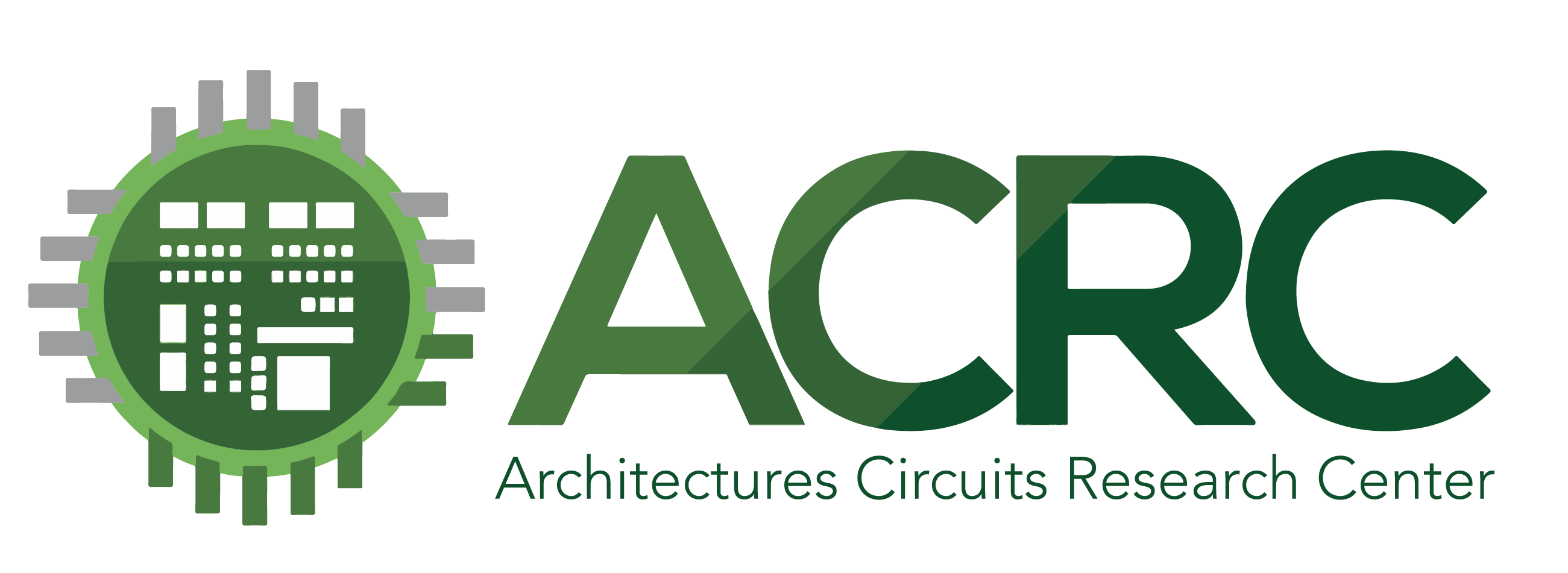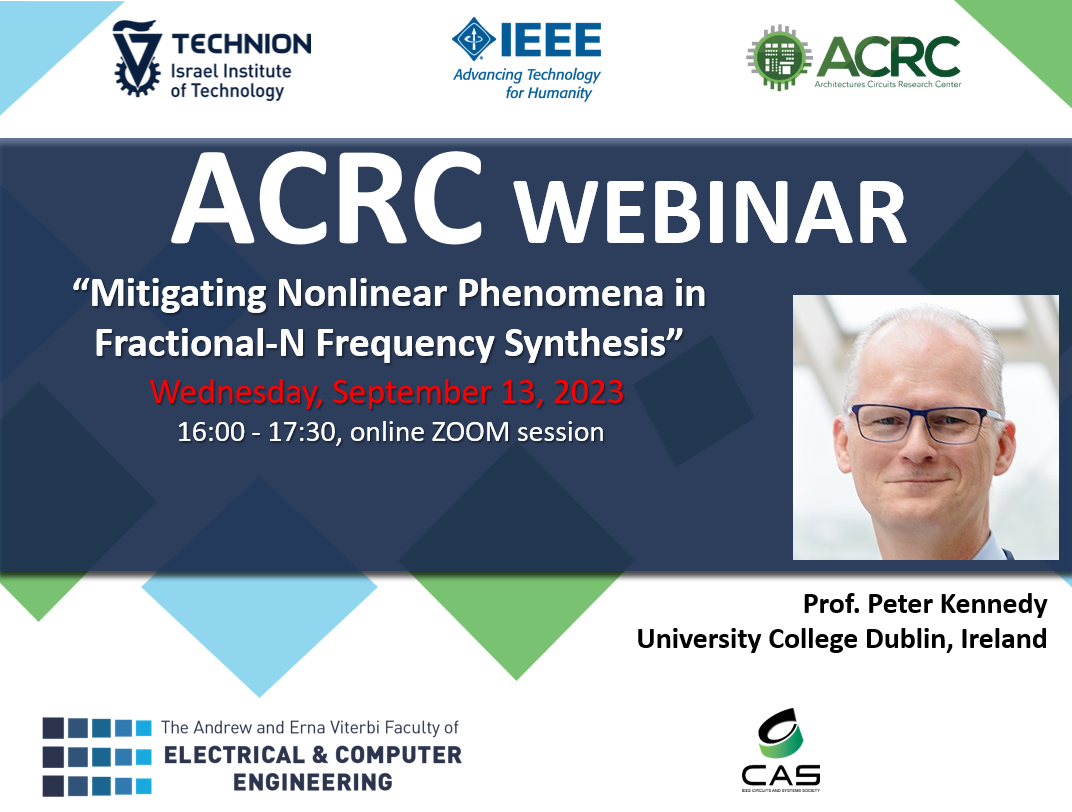Frequency synthesizers are universally used in a wide range of applications including clocking, communications, instrumentation, and radar. The most common architecture is the fractional-N frequency synthesizer which uses a nonlinear finite state machine to produce the desired frequency. Both the finite state machine itself and interaction between its output and nonlinearities in the implementation can lead to unwanted spurious periodic output frequency components (spurs) and excess noise. Understanding of the origins of these effects has led to the invention of novel mitigation strategies.
This talk will explain the underlying issues, explain some recent innovations, and highlight open problems.
Michael Peter Kennedy received the B.E. degree in electronics from the National University of Ireland, Dublin, the M.S. and Ph.D. degrees from the University of California, Berkeley, and the D.Eng. degree from the National University of Ireland. He has published and lectured on a range of topics in the field of nonlinear circuits and systems including oscillators, chaos, neural networks, mixed-signal testing, phase-locked loops, delta-sigma modulation and frequency synthesis. He was made an IEEE Fellow in 1998 for his contributions to the study of Neural Networks and Nonlinear Dynamics. He was awarded the IEEE Third Millennium Medal, the IEEE Circuits and Systems Society Golden Jubilee Medal, and the RIA Parsons Medal. He has held faculty positions at University College Cork, where he also served as Vice-President for Research and Innovation, and University College Dublin, where he is currently Professor of Microelectronic Engineering. He has had visiting appointments at BME, EPFL, Imperial College London, and the University of Pavia. He has provided consulting services to a number of semiconductor companies and was founding Director of Ireland’s Microelectronics Industry Design Association and the Microelectronic Circuits Centre Ireland. He served as President of the Royal Irish Academy from 2017 to 2020.
Important: participation is free of charge, but registration is required
For more details and updates on the series of “ACRC Semiconductor Webinars” please follow our newsletters and our website



